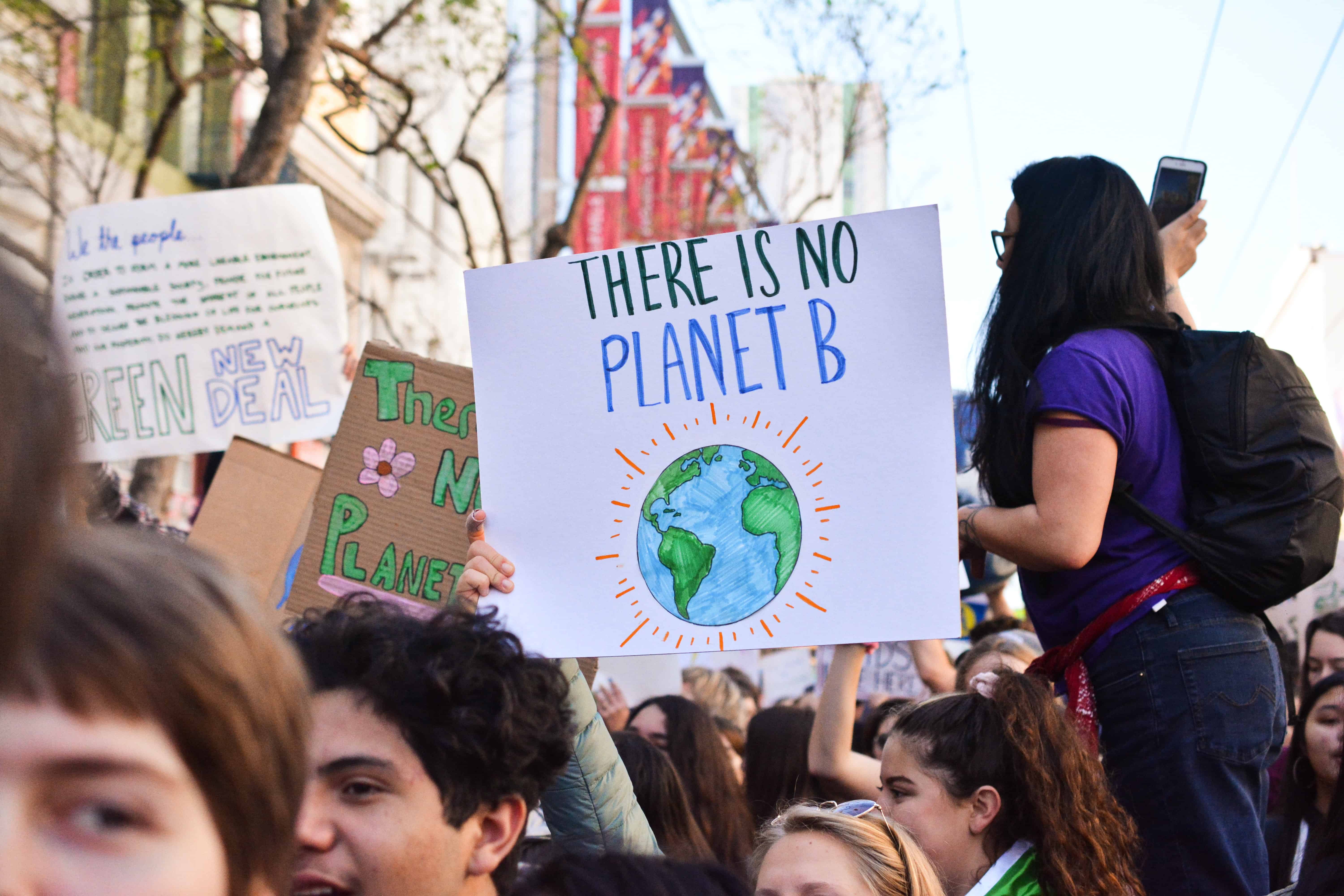By Siobhan Elizabeth Ball
The Day After Tomorrow is a 2004 American science fiction disaster film directed by Roland Emmerich, based on the 1999 book The Coming Global Superstorm by Art Bell and Whitely Strieber. The film depicts several catastrophic climatic effects caused by the disruption of the North Atlantic Ocean circulation, which ushers in a series of extreme weather events prompting a global cooling effect and a new ice age. Reading the news nowadays can be an overwhelming experience eerily similar to Emmerich’s disaster flick, as we try to juggle the emotions and volume of endless tales: the war in Ukraine, the pandemic’s latest variant, the rising cost of fuel and trivial happenings such as the latest spring fashion trends or Will Smith’s outburst at the Oscars. It is no wonder that many are beginning to experience climate anxiety; a condition defined as a sense of hopelessness and helplessness about what the future holds for the planet.
The reality of climate anxiety is akin to Doomsday, creating the collective fear that it is too late to turn things around. According to a study in The New York Times, two-thirds of Americans believe that the government are doing too little to fight climate change, and a survey of 10,000 teens and young adults in 10 countries found that three-quarters were frightened of the future. Sarah Jacquette Ray, the chair of environmental studies at the California State Polytechnic University at Humboldt and author of “A Field Guide to Climate Anxiety” advocates that to fight the sense of powerlessness is to see ourselves as part of a collective, not merely an individual and to resist the curious urge to fall down the rabbit hole of climate horror stories.
The Day After Tomorrow is merely one in a long stream of blockbuster movies on climate change, which Emmerich has said the world needs more of to “wake up people” to the issues we are facing. The current climate may not seem quite so bleak as the one in Emmerich’s Hollywood flick but that does not mean we should just bury our heads in the sand.
Climate scientist Niklas Boers has published a study on the Atlantic Ocean’s Atlantic Meridional Overturning Circulation – which creates the Gulf Stream where warm water travels from the Indian Ocean across the Gulf of Mexico and Europe before cooling down around Greenland and South America is starting to falter. Sound Familiar?! Boers is not advocating that Emmerich’s devastating vision of a future ice age is imminent, but it could happen over several decades, as it is has happened before. Academics have discovered that approximately 11,700 years ago towards the end of the earth’s most recent ice age that a glacial lake burst and spilt through into the Atlantic Ocean causing the AMOC to shut down causing a huge influx of freshwater plunging much of the northern hemisphere into a deep cold atmosphere that lasted 1000 years. This is not an isolated event either. The last year has proved this, especially the 2021 February Freeze in Texas which resulted in more than 200 deaths after Texans were left with no power and water as temperatures dropped to -13 degrees Celsius. Similarly disastrous, Greece experienced one of the worst heatwaves on record, during the summer of 2021, after wildfires scorched through the second largest island, Evia which had to be evacuated as well as sweeping across the Peloponnese and Attica which included areas surrounding the capital, Athens. The Met Office also described Storm Christoph as “one of the wettest three-day periods on record” which led to flooded homes and residents evacuated throughout Cheshire, Merseyside, and Manchester.
Duke University, North Carolina, U.S are amongst a growing number of institutions that have begun to offer students a welcoming forum to gain a greater understanding of the climate with their module “UNIV 102: Let’s Talk About Climate Change”. It was inspired by a conversation between colleagues; a theologian and a biogeochemist to build climate literacy among the students at Duke. Some inspiration was also taken from a popular TED Talk from 2018 by Canadian scientist Katherine Hayhoe, who argued that the most important thing people can do to fight climate change was to talk about it.
Norman Wirzba, one of the forerunners of Duke’s module, recalled whilst attending the COP26 Climate Change Conference in Glasgow last November, how he noticed every conversation aimed at climate crisis solutions tended to discuss a culture change. Questioning whether it is feasible to change the hearts and minds of people about what it is to lead a meaningful and impactful life.
Ultimately, the message on the climate; is to do your part however small or insignificant it may seem your little daily rituals of using a reusable cup for your morning takeaway coffee or taking a recycled cotton tote bag grocery shopping.
It is the small things that can make a big difference.
Photo Credit: Li An Lim via Unsplash


